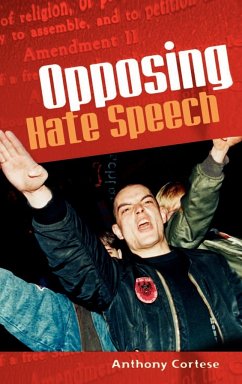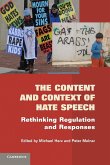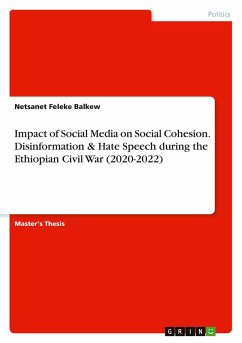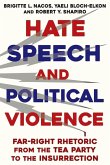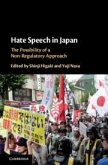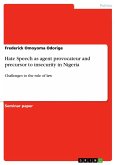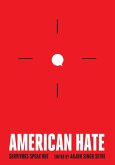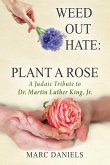What happens when two deeply held American values, freedom of expression and freedom from discrimination, clash? In any well-established democratic society, people have the right to free speech as well as the right to equal treatment and protection under the law. But when one person's speech harms another person on the basis of race, ethnicity, religion, gender, or sexual orientation, it may qualify as hate speech and be subject to restriction. Cortese argues that restricting hate speech does not violate the guiding principle behind the First Amendment, but he is not eager to see more lawsuits. Effective restriction, he asserts, should not focus on litigation but on speech codes and moral education. Is there a limit to freedom of expression in a democracy, and if so, where should the line be drawn? In attempting to answer that question, Cortese makes a solid case for paying attention to context and common sense. Some hate speech is more reprehensible than others; not all discriminatory statements are equally serious. There is a discernible difference between an offensive remark and an incitement to commit murder. There is also a fundamental distinction between intentional and unintentional discrimination. In this book, Cortese rethinks some of the issues that have been silenced in ways harmful to many-especially those that have been brutalized, oppressed, manipulated, dominated, segregated, and disadvantaged. We should recognize the grave injuries inflicted by hate speech and the potential tensions between legal solutions to those injuries and the First Amendment. We must push for moral education, educational speech codes, and when necessary, a formal, legal-structural response to hate speech in order to reinforce our commitment to tolerance as a value.
Hinweis: Dieser Artikel kann nur an eine deutsche Lieferadresse ausgeliefert werden.
Hinweis: Dieser Artikel kann nur an eine deutsche Lieferadresse ausgeliefert werden.

